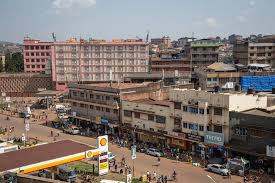The World Bank has announced the resumption of funding to Uganda, nearly two years after suspending new financing to the country due to the enactment of the controversial Anti-Homosexuality Act (AHA). The law, passed in 2023 by Uganda’s parliament, triggered global outrage for its harsh penalties, including life imprisonment and even the death penalty in certain cases of what the law termed “aggravated homosexuality.”
In a statement on Thursday, a World Bank spokesperson confirmed that the institution had been working closely with Ugandan authorities to ensure strong mitigation measures were implemented across ongoing projects, in line with the bank’s commitment to inclusion and non-discrimination.
“We have now determined the mitigation measures rolled out over the last several months in all ongoing projects in Uganda to be satisfactory,” said the spokesperson, who requested anonymity. As a result, the Bank has given the green light to three new development projects in key sectors including social protection, education, and forced displacement/refugees.
The Board of the World Bank has approved these projects, marking a cautious return of one of Uganda’s most significant external financiers. Before the funding freeze in August 2023, the World Bank had been a major partner in Uganda’s economic development efforts, particularly in infrastructure, healthcare, and education.
The initial suspension followed the signing of the Anti-Homosexuality Act by President Yoweri Museveni, which the World Bank and several other international bodies condemned for violating human rights and discriminating against LGBTQ+ individuals. The law includes extreme punishments, such as the death penalty for “aggravated homosexuality,” which covers cases involving people living with disabilities or where a same-sex act allegedly leads to the transmission of a terminal illness.
The AHA also criminalises the “promotion” of homosexuality, with up to 20 years in prison, creating widespread concern about its impact on civil society, public health programmes, and freedom of expression.
While the Ugandan government has remained defiant in the face of international criticism, officials have since taken steps to reassure partners like the World Bank that their funds will be protected from any discriminatory application. The mitigation measures reportedly include safeguards to ensure inclusive access to public services and independent monitoring of project implementation.
Despite this move by the World Bank, the anti-LGBTQ+ law remains on Uganda’s books and continues to be a flashpoint in international human rights discussions. Human rights groups have warned that resuming aid to Uganda could be seen as a softening of pressure on the East African government, potentially emboldening other countries considering similar laws.
However, the World Bank insists its decision was guided by its mission to reduce poverty and support development for all people, especially in critical sectors like education and refugee support. Uganda currently hosts over 1.5 million refugees, making it one of the largest refugee-hosting countries in Africa.
Development experts say the return of World Bank funding could ease budgetary pressures and help Uganda meet growing social demands amid a struggling economy. Uganda has faced economic headwinds from inflation, youth unemployment, and funding gaps in public services since 2023.
The announcement is likely to spark debate both domestically and internationally. While the Ugandan government will welcome the renewed support, global civil society organisations may question whether enough has been done to ensure human rights compliance within the World Bank-supported projects.
